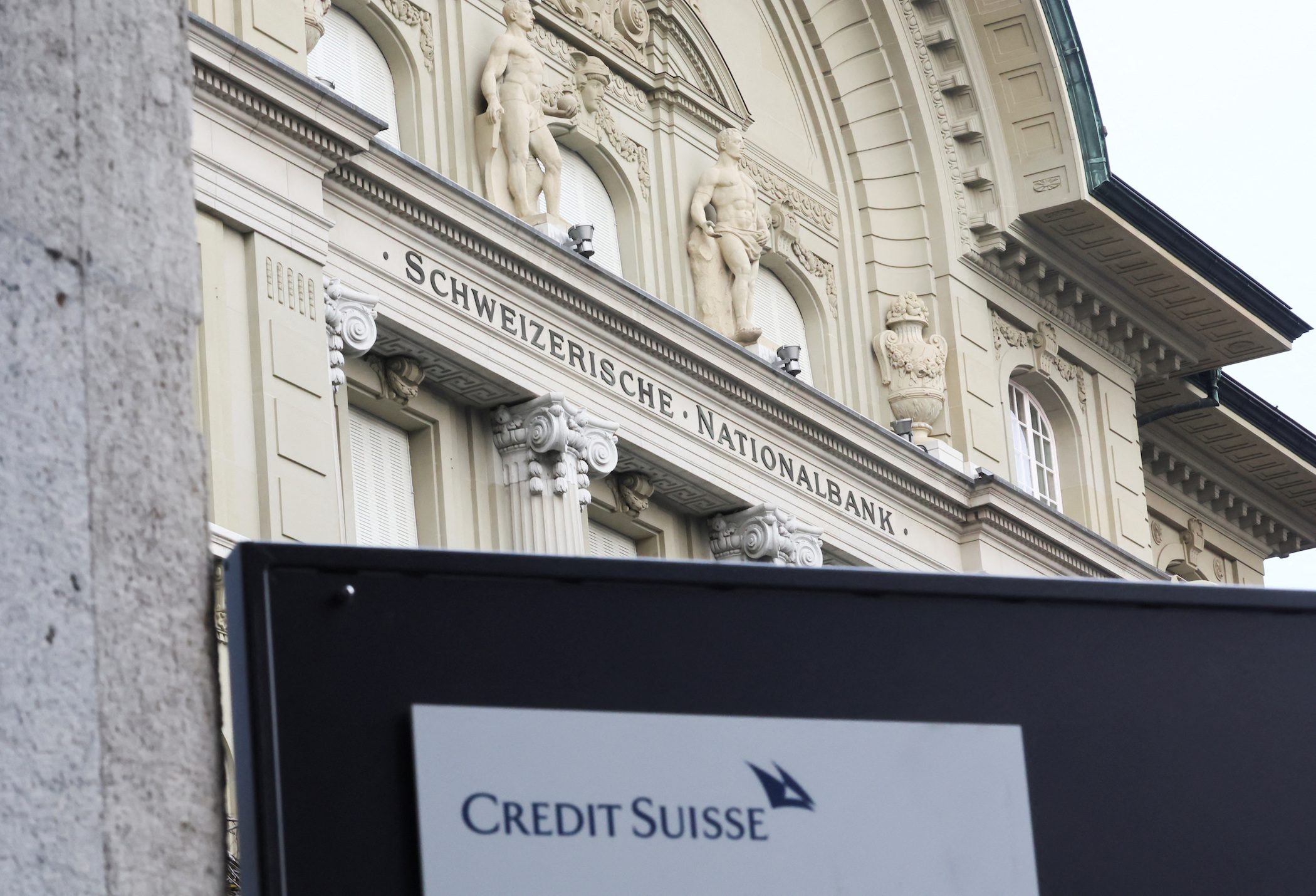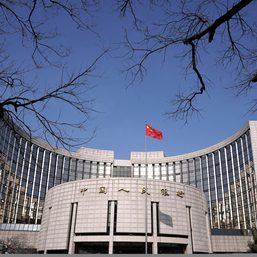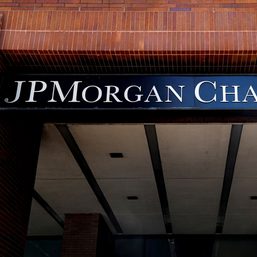SUMMARY
This is AI generated summarization, which may have errors. For context, always refer to the full article.

Some of the world’s largest central banks came together on Sunday, March 19, to stop a banking crisis from spreading as Swiss authorities persuaded UBS Group to buy rival Credit Suisse Group in a historic deal.
UBS will pay 3 billion Swiss francs ($3.23 billion) for 167-year-old Credit Suisse and assume up to $5.4 billion in losses in a deal backed by a massive Swiss guarantee and expected to close by the end of 2023.
Soon after the announcement late on Sunday, the US Federal Reserve, European Central Bank (ECB), and other major central banks came out with statements to reassure markets that have been walloped by a banking crisis that started with the collapse of two regional US banks earlier this month.
S&P 500 and Nasdaq futures were each up 0.4%, both giving back some earlier gains. New Zealand dipped at the open and Australian shares opened with a 0.5% loss. The safe-haven dollar lost ground against sterling and the euro but was up versus the yen.
Pressure on UBS helped seal Sunday’s deal.
“It’s a historic day in Switzerland, and a day frankly, we hoped, would not come,” UBS chair Colm Kelleher told analysts on a conference call. “I would like to make it clear that while we did not initiate discussions, we believe that this transaction is financially attractive for UBS shareholders,” Kelleher said.
UBS chief executive officer Ralph Hamers said there were still many details to be worked through.
“I know that there must be still questions that we have not been able to answer,” he said. “And I understand that and I even want to apologize for it.”
In a global response not seen since the height of the pandemic, the Fed said it had joined with central banks in Canada, England, Japan, the EU, and Switzerland in a coordinated action to enhance market liquidity.
The ECB vowed to support eurozone banks with loans if needed, adding the Swiss rescue of Credit Suisse was “instrumental” for restoring calm.
Fed Chair Jerome Powell and US Treasury Secretary Janet Yellen welcomed the announcement by the Swiss authorities. The Bank of England also praised the Swiss.
“The greater risk environment for financials leads to husbanding of capital and risk-taking, less and more conservative investing and lending, and inevitably, lower growth,” said Lloyd Blankfein, former chairman and CEO of Goldman Sachs Group.
“While some banks have been hung up by poorly managed, concentrated risk, the overall banking system is extremely well-capitalized and substantially more tightly regulated than in prior challenging times.”
The Swiss banking marriage follows efforts in Europe and the United States to support the sector since the collapse of US lenders Silicon Valley Bank (SVB) and Signature Bank.
Some investors welcomed the weekend steps but took a cautious stance.
“Provided markets don’t sniff out other lingering problems, I’d think this should be pretty positive,” said Brian Jacobsen, senior investment strategist at Allspring Global Investments.
Problems remain in the US banking sector, where bank stocks remained under pressure despite a move by several large banks to deposit $30 billion into First Republic Bank, an institution rocked by the failures of SVB and Signature Bank.
On Sunday, First Republic saw its credit ratings downgraded deeper into junk status by S&P Global, which said the deposit infusion may not solve its liquidity problems.
US bank deposits have stabilized, with outflows slowing or stopping and in some cases reversing, a US official said on Sunday, adding the problems of Credit Suisse are unrelated to recent deposit runs on US banks and that US banks have limited exposure to Credit Suisse.
The US Federal Deposit Insurance Corporation, meanwhile, is planning to relaunch the sale process for SVB, with the regulator seeking a potential breakup of the lender, according to people familiar with the matter.
‘Decisive intervention’
The intervention comes after two sources told Reuters earlier on Sunday that major banks in Europe were looking to the Fed and ECB to step in with stronger signals of support to stem contagion.
The euro, the pound, and the Australian dollar all rose by around 0.4% against the greenback, indicating a degree of risk appetite in markets.
“Bank stocks should rally on the news, but it is premature to signal all-clear,” said Michael Rosen, chief investment officer for Angeles Investments in California.
Kelleher said during a press conference that it will wind down Credit Suisse’s investment bank, which has thousands of employees worldwide. UBS said it expected annual cost savings of some $7 billion by 2027.
The Swiss central bank said Sunday’s deal includes 100 billion Swiss francs ($108 billion) in liquidity assistance for UBS and Credit Suisse.
Credit Suisse shareholders will receive 1 UBS share for every 22.48 Credit Suisse shares held, equivalent to 0.76 Swiss francs per share for a total consideration of 3 billion francs, UBS said.
Credit Suisse shares had lost a quarter of their value last week. The bank was forced to tap $54 billion in central bank funding as it tries to recover from scandals that have undermined confidence.
Under the deal with UBS, some Credit Suisse bondholders are major losers. The Swiss regulator decided that Credit Suisse bonds with a notional value of $17 billion will be valued at zero, angering some of the holders of the debt who thought they would be better protected than shareholders in a rescue deal announced on Sunday. – Rappler.com
$1 = 0.9280 Swiss francs
Add a comment
How does this make you feel?





There are no comments yet. Add your comment to start the conversation.